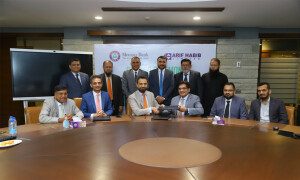Nigeria on Sunday became Africa's biggest economy, leap-frogging South Africa, after the government announced a long-overdue rebasing of the country's gross domestic product. The new calculations take into account changes in production and consumption since the last time the exercise was carried out in 1990 and indicated that the economy grew to $453 billion in 2012, instead of $264 billion as measured by the World Bank for that year.
South Africa's economy was at $384 billion in 2012, according to the World Bank.
Estimates for 2013 indicatedfurther expansion to $510 billion, Nigeria's chief statistician, Yemi Kale, told a news conference in the capital, Abuja.
"Nigeria has moved to be the largest economy by GDP size in Africa and has moved to be the 26th largest economy in the world," finance minister Ngozi Okonjo-Iweala said.
"On a per capita basis, Nigeria is number 121 in the world. So, we have a total GDP size where we have moved up to 26th," the former World Bank managing director added.
The widely expected results are based on calculations taking into account a range of new sectors and industries that were negligible or non-existent in 1990.
They include the massive mobile telephones market, music and the hugely popular local film industry, Nollywood. With 170 million people, Nigeria is about three times the size of South Africa and has enjoyed high rates of growth, notwithstanding widespread corruption, poor governance, rampant oil theft and a raging Islamist insurgency in the north.
According to the International Monetary Fund, Nigeria averaged 6.8 percent annual growth from 2005 to 2013 and was projected to grow this year at a rate of 7.4 percent. That compares to a little over five percent between 2005 and 2008-9 in South Africa, which has struggled to go beyond 3.5 percent since.
Global investors have been eyeing Nigeria as a potential boom market, along the lines of the BRIC countries (Brazil, Russia, India and China) 10 years ago.
But economists have warned not to take the new figures at face value, given that South Africa - the continent's only G20 member - has fewer people and is streets ahead in areas such as infrastructure and governance. Okonjo-Iweala said GDP per capita in Nigeria was now $2,688 - up from $1,555 in 2012 - taking the country from 135th position in the world to 121st.
BR100
12,164
Increased By
437.9 (3.73%)
BR30
37,746
Increased By
1369.1 (3.76%)
KSE100
113,252
Increased By
3738.7 (3.41%)
KSE30
35,792
Increased By
1278.3 (3.7%)

























Comments
Comments are closed.